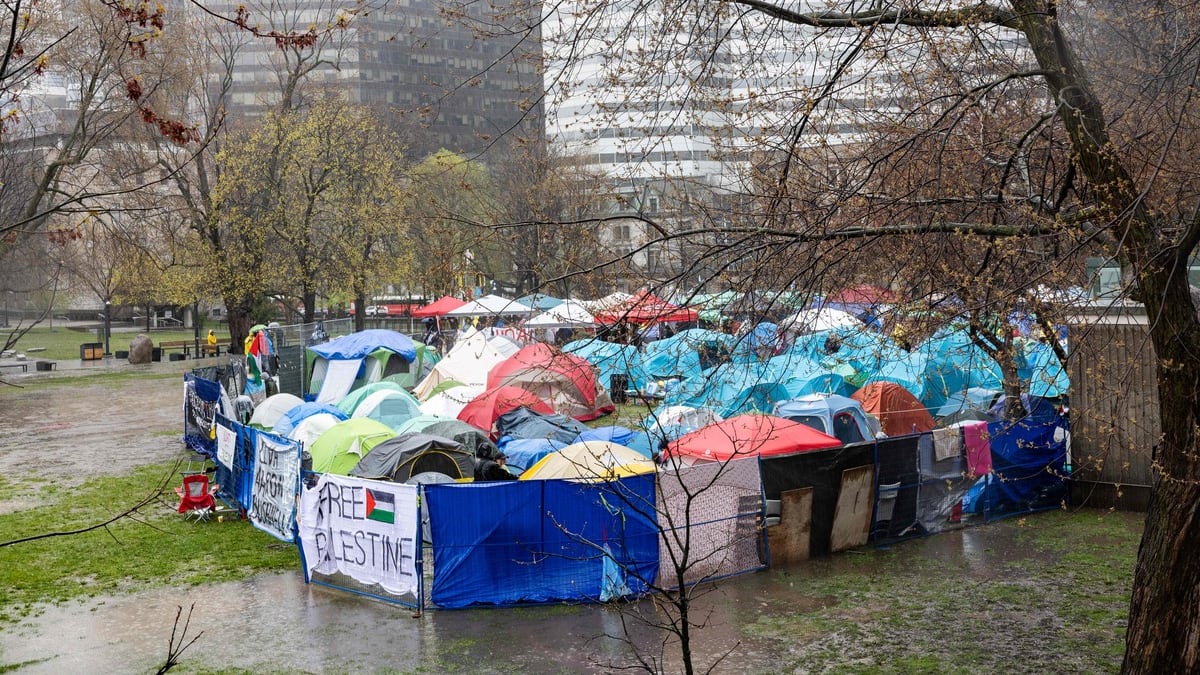
One year after the “Shakahola massacre” was revealed, hundreds of families are still haunted by many unanswered questions about the killing of 429 followers of an evangelical sect in a forest in southeastern Kenya.
• Read also: Deadly fast in Kenya: Pastor will also be tried for 'assassinations'
• Read also: Deadly fast in Kenya: The death toll from the “Shakahola massacre” exceeds 400 people
When Francis Wangi heard in December 2022 from a former member of the International Church the good news about extreme fasting practices in the Shakahola Forest, he feared the worst.
This teacher repeatedly tried to travel to the vast “bush” region on the Kenyan coast, where he knew that one of his daughters and her family – eight people in all – had joined the cult of Reverend Paul Nothing Mackenzie.
After being blocked by hostile followers, he informed police who discovered 15 people in a state of malnutrition on April 13, unveiling a scandal that has horrified the religious, majority-Christian East African country.
Among these fifteen people was his eldest grandson, who was skeletal and on the verge of death.
In the following months, 429 bodies would be exhumed in this forest where Paul Nothing Mackenzie urged his believers to fast to death to “meet Jesus” before the end of the world scheduled for August 2023. These deaths were spread over several years.
Autopsies revealed that the majority of the victims died of starvation, but some were strangled, beaten, or suffocated.
According to Francis Wangi, two of his grandchildren suffocated.
“It's been a very complicated journey. Very complicated,” the 59-year-old explains, speaking about the past year.
He was slightly relieved when the bodies of four of his relatives were recovered last month, including those of his daughter and grandson.
“abandoned”
Like him, hundreds of families gathered in the town of Malindi to find out whether their lost loved ones or who they knew were members of the sect were among the victims.
They wait in amazement to identify the bodies.
So far, only 34 of the 429 bodies have been identified through DNA testing due to a lack of material.
“We are still in the dark,” complains Mapenzi Kumbi, 31, whose sister disappeared after joining the sect. “Our mother cries every day and her tears don’t stop,” he says, pointing to an elderly woman sitting a little further away and staring into space.
“We are devastated by the slowness of the DNA process,” says Roslyn Asena, for whom the situation is “shameful.”
Her brother and sister-in-law are held captive for helping Mackenzie starve his followers, including their five children, the youngest of whom is only a year old.
The couple refused to “disclose the whereabouts of the children,” and with the search suspended for several months, every day they lose more and more hope of “finding them alive.”
She also says she has not contacted officials since May 2023, when she was promised the identification process would take no more than two months.
“No visits and no psychological support (…). “The government has completely abandoned us to our fate,” she says.
The head of the Kenya National Commission on Human Rights (KNCHR) – an official but independent body – is asking for support from the families, as well as from the police officers who faced this horror.
Roselyn Odede asserts that “people (…) need to mourn this issue.”
“Unfounded accusations”
If Pastor McKenzie is behind bars and awaiting trial for “terrorism”, the “murder” of 191 children (including three infants) or even “torture” and “cruelty” to children, Francis Wangi will not be able to find the solution to peace.
“These senseless murders could have been avoided if everyone had acted immediately,” he says.
A report by a Senate committee cited “failures” of the local police and justice system that did not prevent the pastor's actions, despite him being arrested several times for his extremist preaching.
KNHCR also alleged in a March report that police ignored several warnings about the cult, including those of a former follower who posted requests for help on Facebook in November 2022.
“Instead of investigating the validity of the issues raised, the lady was intimidated after she was accused of making baseless accusations,” denounces the Kurdistan National Center for Human Rights, stressing that the police accepted a complaint from Pastor McKenzie regarding these messages, which he said were lies.
The only measures taken since the scandal was revealed were the transfer of security officials.






